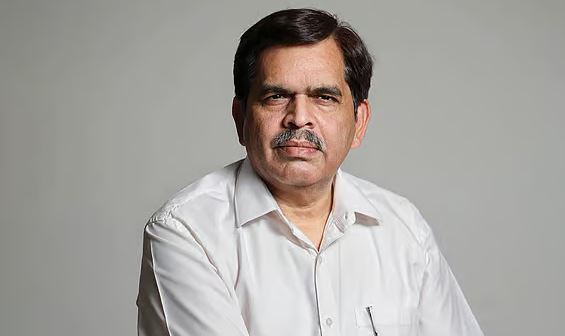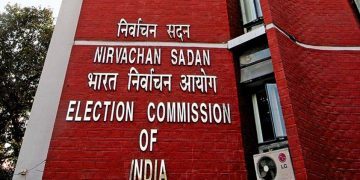New Delhi: The Swadeshi Jagran Manch (SJM) on Friday slammed the US for applying “coercive tactics” on India to gain access to Indian markets in sensitive sectors, and asked the government to stay firm on its stance to protect national interest.
While trade threats will ultimately harm US consumers by driving up domestic inflation, for India, any “short-term losses” will only strengthen the imperative of becoming self-reliant in critical sectors, the RSS affiliate added.
The SJM was reacting to US President Donald Trump announcing a 25 per cent tariff on India and an additional penalty for New Delhi’s purchases from Russia.
“The SJM expresses deep concern over US President Donald Trump’s recent statement threatening ‘unspecified penalties’ against India’s trade ties with Russia, in addition to the already announced 25 per cent tariff hike,” the Manch’s national co-convenor Ashwani Mahajan said in a statement.
He said India’s sovereign right to procure defence equipment to strengthen self-reliance in defence production and to secure crude oil at the most competitive prices, essential to keeping domestic inflation under check, cannot be subjected to external pressure.
If Washington believes that such “coercive tactics” can sway India’s decisions, it must recognise that today’s India is not the India of a decade ago, he added.
“The SJM urges the government of India to maintain its firm stance and to use this moment to strengthen strategic autonomy, protect national interest, and advance a truly multi-polar and equitable global trade order, and make a decisive move towards ‘Aatmanirbhar Bharat, ‘” Mahajan said.
“We are emerging as a global power, demonstrated decisively during Operation Sindoor, and are committed to building robust indigenous capabilities in arms production. The United States, too, needs to move beyond the inertia of a unipolar worldview and embrace the reality of a multi-polar, cooperative order,” he said.
“The SJM believes this is a moment to accelerate diversification of trade beyond traditional partners, deepening ties with Latin America, Africa, the expanded BRICS bloc, and the Global South. While the US remains India’s largest trading partner, trade must always serve mutual benefit – not be used as an instrument of pressure,” he added.
Mahajan said it is “unfortunate” that the US has chosen to adopt punitive measures against India, which is a strategic partner of the country, at a time when the world must collectively respond to the far greater challenge posed by China’s weaponisation of trade and global value chains.
Beijing’s restrictions on rare earth exports are causing huge harm to manufacturing capacities worldwide, he said.
Rather than resorting to building pressure, the US should strengthen cooperation with India to build resilient, diversified, and equitable global supply chains, he added.
“We congratulate the government of India for standing firm against pressure during the ongoing India-US Free Trade Agreement (FTA) negotiations despite threats of reciprocal tariffs and the missed deadlines of July 9 and July 31,” the SJM national co-convenor said.
Indian negotiators have “rightly” resisted attempts to force open our markets to genetically modified (GM) agricultural products, dairy imports, and other sensitive sectors, he added.
“It is worth noting that the US continues to exert pressure on multiple countries to lower tariffs outside the framework of WTO rules, often invoking non-trade considerations under the guise of reciprocity,” Mahajan said.
“The key sticking points in the current negotiations remain the US demand for market access for GM crops, deregulation of medical devices, and unrestricted cross-border data flows,” he added.
India has legitimately sought exemptions from steel, automobile, and pharmaceutical tariffs and defended its policy of data localisation, he added
“India’s ‘principled stand’ that GM food imports threaten both our biodiversity and food security, and that sensitive data must remain within sovereign control is fully aligned with our long-term national interest,” the senior SJM functionary said.
“We must avoid concessions that undermine our farmers, small-scale industries, or long-term economic self-reliance,” he said.
The experience of recent years has shown that India can leverage shifting global trade patterns, including those “resulting from US-China tensions”, to its advantage without compromising core interests, he added.
PTI






































